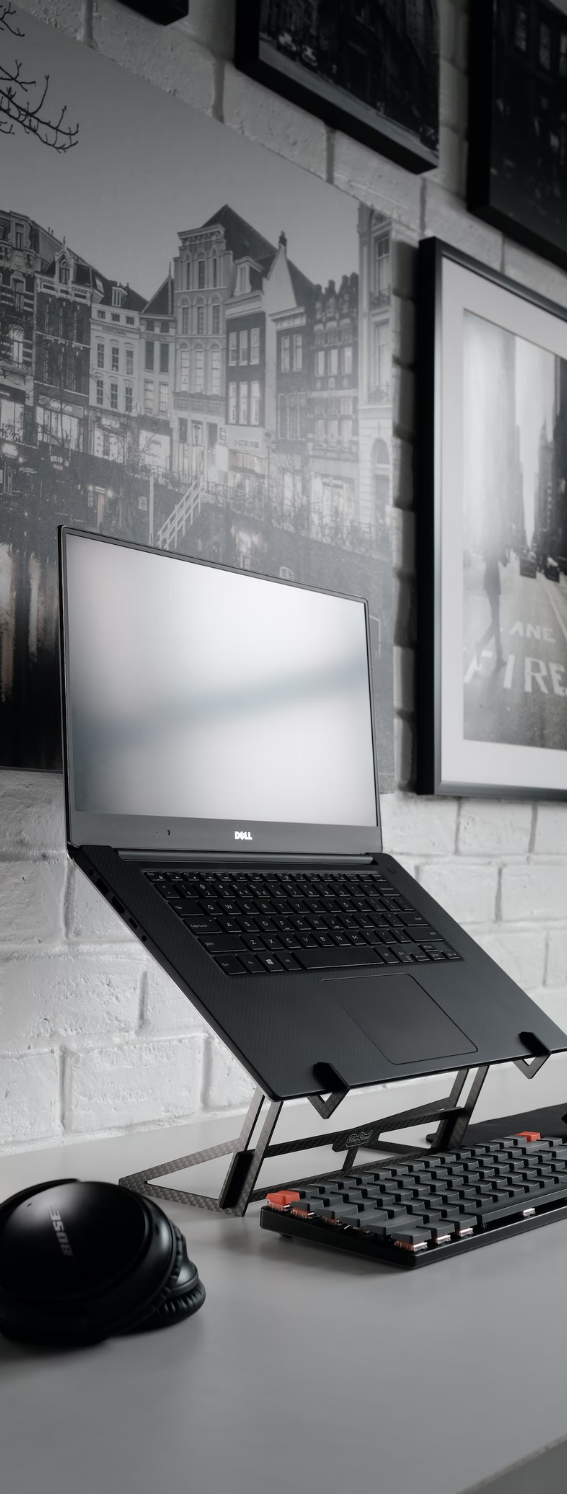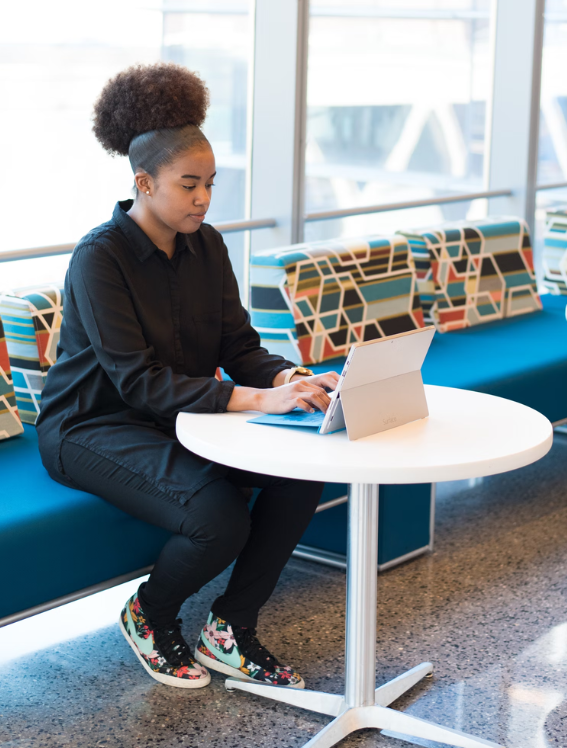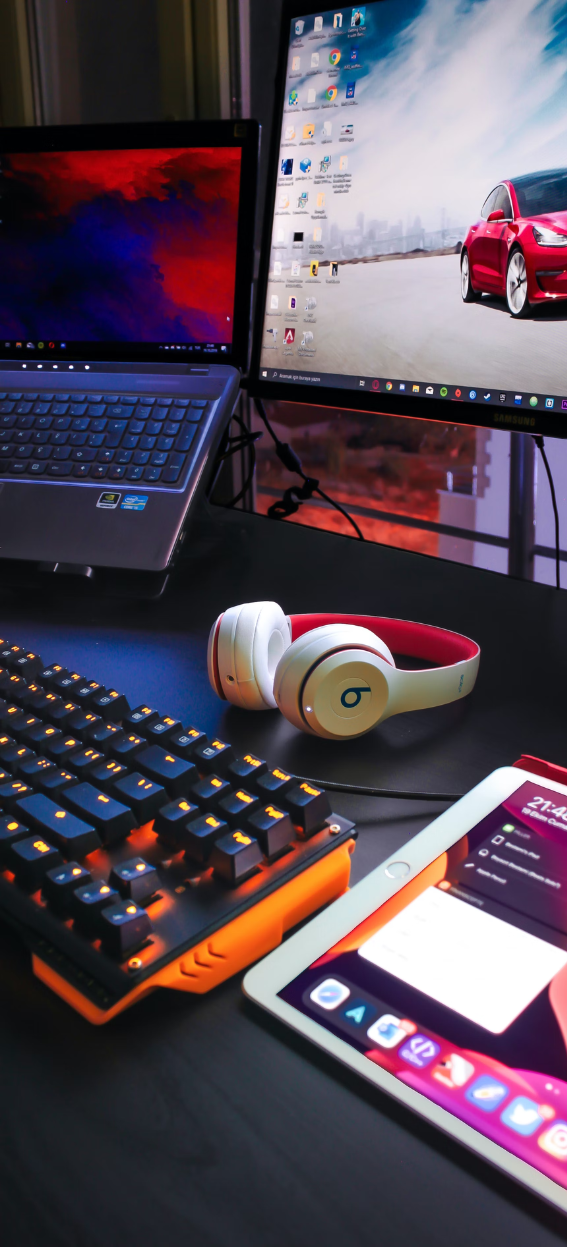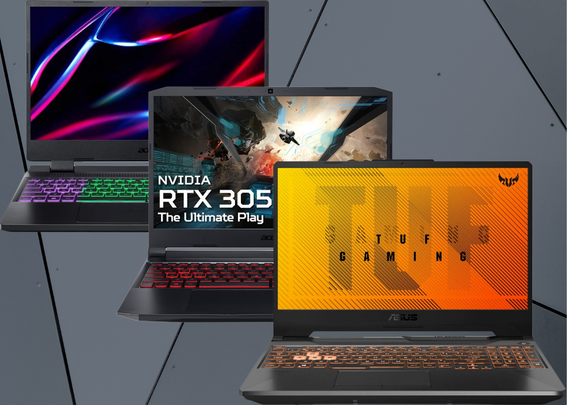Remote and hybrid working is now commonplace, so a laptop is the ideal way to get things done at home, on the move or in the office. For students, a laptop is the perfect companion in lessons and lectures as well as home study. This guide will help you choose a laptop for both work and study, detailing what to look out for and why.

Laptops for business and study are similar in many ways, but there are a few differences. We will look at how to choose the perfect laptop for working remotely or on the move, and the best features for students of all ages.

The most important aspect of a laptop is portable performance - but that comes in many forms. All of the components in a modern laptop designed for productivity are developed with one very specific thing in mind - battery life. After battery life, portability is the next high priority. Balancing these two factors can be difficult without a little insight into what you need.
Processor: Mobile processors are designed to perform at peak levels without draining the battery quickly, with a lower power draw than their desktop counterparts. Lower voltage does mean less power, but for work and study, the differences are not as great as you would imagine. For instance, Intel 12th-Gen Core i7 and Core i9 mobile processors operate using performance and efficiency cores, much like desktop versions, with large L2 and L3 cache, enabling them to attain high benchmark scores in productivity applications like MS Office, Google Chrome and more.
AMD Ryzen 9 mobile processors offer lower TDPs (lower power requirement) and faster turbo speeds, which effectively means you have the power and performance you need when you need it. To add to this, Ryzen 9 chips use the smaller 6nm manufacturing process over Intel's 10nm chips - which also means they require less power. For this reason, AMD based laptops often perform much better on battery than Intel.
If you will be working without a mains outlet for long periods, AMD may be your best option. For heavy productivity work mostly at your desk, Intel offers high performance in their latest generation processors.
Display Type: As business and student laptops generally mean a lot of screen time, the best display for this type of intensive use is FHD IPS. A Full HD IPS display means you are less at risk of eye-strain, and when compared to TN panels, offers much better viewing angles. This means you will see less "shadowing" around the display, and eliminates the constant tilting and adjusting to get the best view of the screen.
Cooling System: It is important to choose a laptop with a well-designed and proprietary cooling system like Razer's advanced vapor chamber cooling, or Acer's 4th-gen aero blades and 3D metal fans. Though you can mitigate a lot of heat issues with an effective cooling pad for your laptop.
Storage: SSD is phenomenal in terms of mobile performance, as it consumers so much less power than a HDD. SSD is also faster and more reliable, so there are few reasons why you'd opt for a laptop that only offers a hard drive for storage. That said, external drives are a great addition to a laptop for work or study, which we will discuss further down.
Keyboard: If you spend a lot of time typing, the keyboard on a laptop is important, and comfort is key. Choose tactile and responsive keyboards, or even a compact keyboard if you are going to be typing a lot. If you require a "numpad", choose a full size keyboard instead.
Portability: Thin and light features are a mainstay for work and student laptops, enabling you to take a laptop wherever you go in a carry case, and take up very little space on a desk. There is, however, occasionally a trade-off when opting for a very thin laptop, where you may sacrifice some high-end performance. Some creators (3D designers, graphic designers or illustrators) may need to balance portability with performance, as thin and light may not offer the highest specification of graphics card.
Note: For creator laptops, we have made recommendations in our Creator Laptop Buying Guide.
Generally speaking, a business laptop needs to be reliable and perform multiple concurrent tasks, both on the move or in the office. Though the hardware is the most important aspect of a laptop, manufacturers have been very focused on adding features to ensure you get the most out of your notebook.
Depending on the type of work you will need to do on your laptop, different levels of specification and features are required.
This is the most popular use case for a business laptop or notebook, and as such, means there are many options available from various manufacturers, as well as tailor-made business laptop brands such as Geo. All modern Intel and AMD processors are capable of general office work, designed to run all of the above without slowing down.
For more intensive work and reliable multi-tasking, a higher specification is needed. A capable processor, adequate RAM memory and solid overall performance from a branded laptop is important.
If your work requires you watch very high definition videos (UHD/4K), or you are potentially going to need to use editing applications like Photoshop, then a notebook that has a an octa-core CPU (or better) and a solid AMD or NVIDIA graphics card will also be beneficial. Whilst most business laptops come with an integrated graphics card, for performance in lightweight editing applications or watching Ultra HD videos, a graphics card is highly recommended.


For students, laptop are now an essential piece of kit alongside textbooks. Work is not limited to the classroom or lecture halls, so besides being able to take notes and help with understanding lessons, a laptop needs to be portable enough to work on at home, where space is at a premium or in a dorm room.
Extracurricular activities are vitally important to students, too, whether that is streaming HD movies, listening to music, gaming, or communicating with a social network. With gaming being the most demanding of all these pastimes, it is also one of the most popular, accounting for 60% of students aged 16+.
A student laptop is designed to cover the essentials and beyond: -
There are a large number of laptop accessories designed to keep your laptop running smooth, allow you more flexibility, and keep it secure. Here is a short list of accessories we recommend to all laptop buyers, whether for work or study: -
Carry case: A great way to transport your laptop while keeping it safe and secure, a carry case will allow you to store your notebook, power pack and other accessories and take them with you easily.
Cooling pad: A cooling pad takes the strain off the laptop's cooling system, processor and fans. A huge increase in performance can be expected from adequate cooling.
Docking station: Ideal for charging at a desk, a docking station allows you to have a permanent home for your laptop, mouse, keyboard and a monitor if you have one attached.
Security: The most important thing is that you do not get your laptop stolen when it is being left unattended in a classroom or office. Kensington lock mechanisms are included in the majority of laptops, allowing you to attach a compatible Kensington lock, and secure your notebook.
Mouse & Keyboard: A mouse and keyboard allows you much more accuracy, flexibility and comfort. Ideally, choose a mouse and keyboard bundle for maximum compatibility and a matching aesthetic.
Headset with mic: Perfect for work communication, gaming or watching videos, a high quality headset will give you much more flexibility than a traditional set of earphones.


If you are budget focused, we have a range of laptop deals for both work and study, ranging from powerful mobile workstations to high performance gaming laptops, and everything in between.
Yes. We offer various finance options, with flexible payments depending on the price of the laptop.